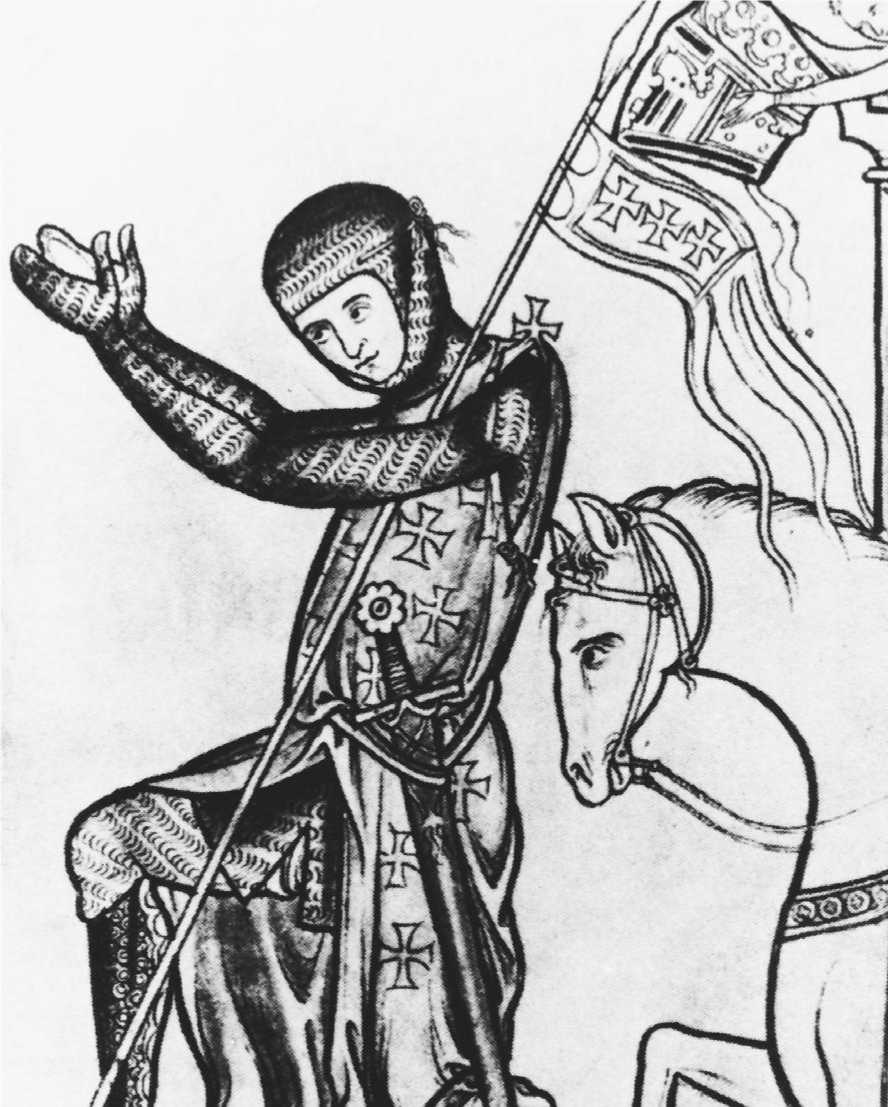Meanwhile the official crusade was just getting started. Unlike the peasants, the nobles had taken time to organize and prepare their armies, which reached the Holy Land in early 1097. They scored their first major victory at Nicaea in June—but only with the help of Alexis, who claimed the city for Byzantium. A few months later, Baldwin took Edessa in eastern Asia Minor and established the County of Edessa, the first of several "crusader states"; but he seized it from Armenian Christians, not Turks. Meanwhile the main body of crusaders besieged Antioch (AN-tee-ahk), an ancient city on the border between Turkey and Syria that had been an important center of the early church. An-

A Crusader. Reproduced by permission of the New York Public Library Picture Collection.
Tioch became another crusader state, under the rule of Bohemond.
Then in July 1099, forces under Tancred and others conducted a brutal assault on Jerusalem, and seized the city after slaughtering thousands of Muslims. Ironically, Jerusalem was no longer in the hands of the Turks; a year earlier, it had fallen under the control of the Egyptians, who despised the Turks almost as much as the Europeans did. The Egyptians had promised that once they controlled Jerusalem, the Christians would have full access to all holy sites. But the original purpose of the Crusades had already been lost: the Europeans wanted land and treasure, and they could only get those by stealing. In the end, Godfrey of Bouillon emerged as the ruler of the new Latin Kingdom of Jerusalem.
With the establishment of a fourth crusader state, the County of Tripoli, the crusaders controlled the entire Mediterranean coast of what is now Syria, Lebanon, and Israel. Though the Crusades would continue for centuries, this was the high point from the Europeans' perspective; from then on, they would mostly be fighting to hold on to what they had gained in the 1090s. Eventually the Muslims, caught off guard by the First Crusade, would begin to react in a spirit of jihad. One of the most negative outcomes of the Crusades—a deep hatred of Christians among many Muslims—had been set into motion.




 World History
World History









